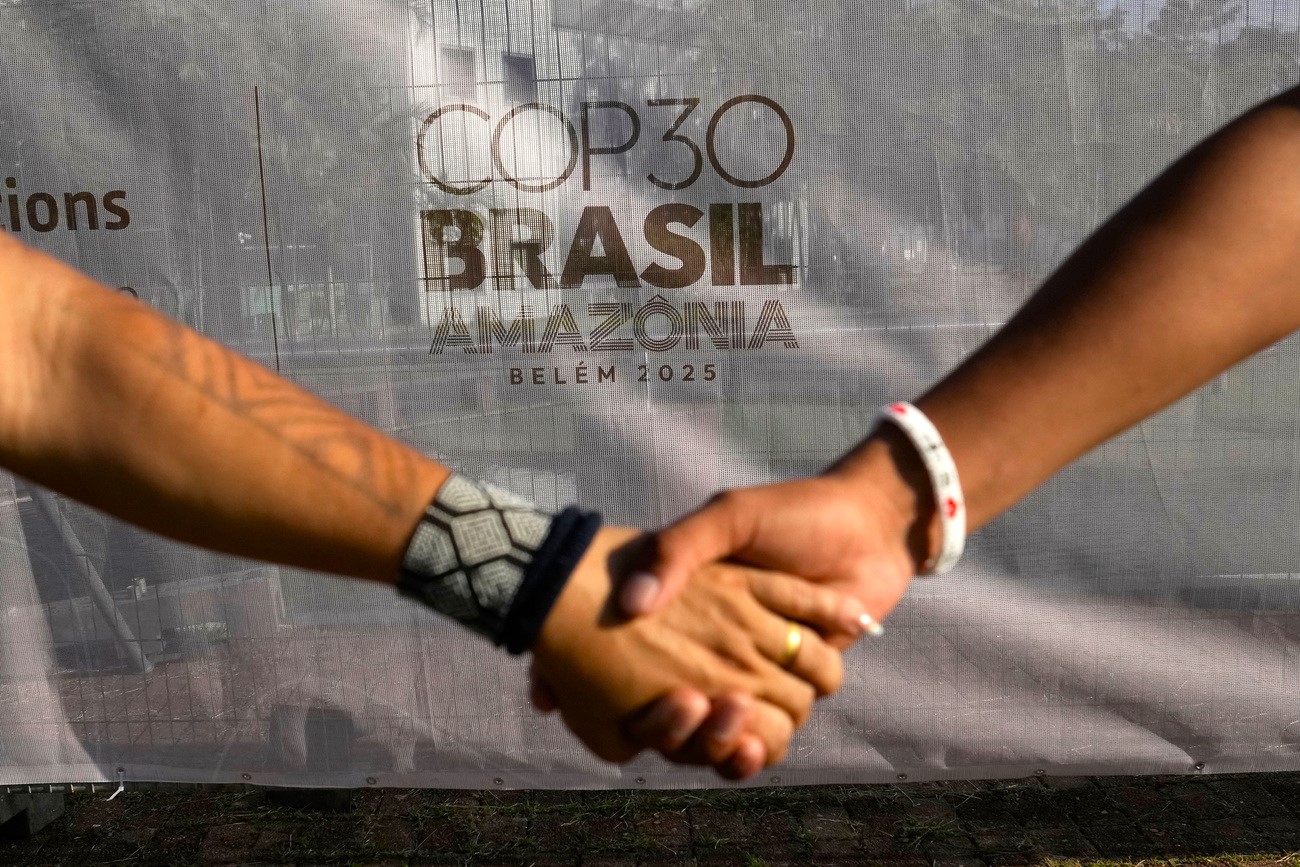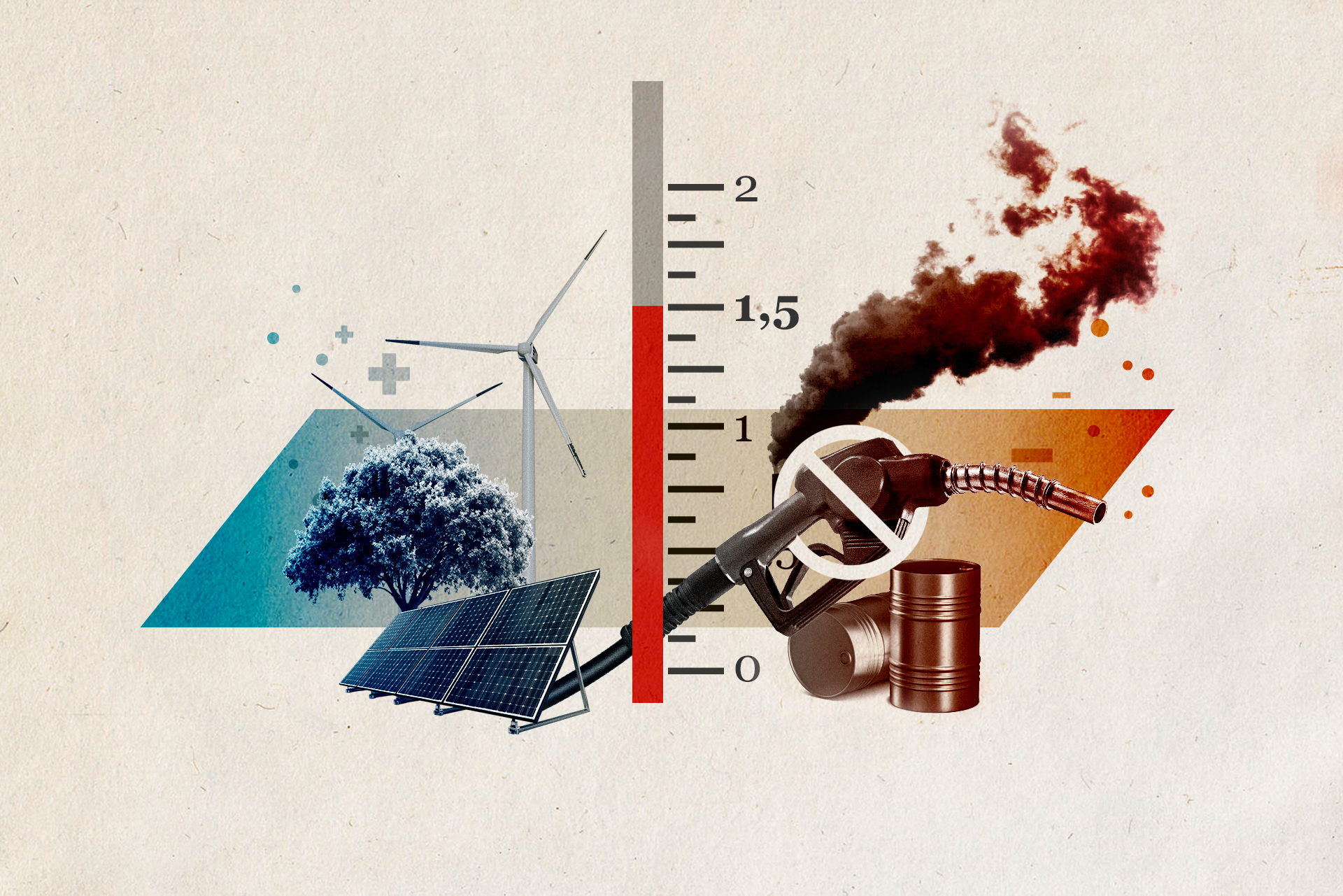
COP30 analysis: too little, but still worthwhile

The United Nations climate summit held in Belém, Brazil, ended with a compromise climate deal on Saturday. Climate protection was not decisively strengthened, but the fragile COP30 deal still has certain value, says Swiss public radio, SRF, reporter Christian von Burg.
The results of the climate conference are poor and offer much too little. From a scientific perspective, the decisions taken in Belém do not achieve the goal of limiting global warming to between 1.5°C and 2°C above pre-industrial levels.
Reducing CO₂ emissions sufficiently would require a rapid exit from oil, gas and coal. But the plan for this exit, proposed by Brazil, was attacked and scuttled by oil-producing states as well as by China and India. What remained was a text on climate protection that did not offer much more than what had already been decided in previous years.
Switzerland and the European Union agreed on the document reluctantly. They did not want to damage the multilateral climate conference process by rejecting it. Instead, they wanted to show that dialogue between almost 200 states continues even without the elephant in the room: the United States.
>> Global emissions and temperatures continue to rise. However, limiting global warming is possible, as climate researchers in Switzerland explain:

More
We can still solve the climate crisis – here’s how
Other climate actors gain in importance
The UN climate change conference, or the conference of the parties (so-called COP gathering), has long since ceased to be the sole driving force for greater climate protection. Since the Paris Agreement ten years ago, there have been considerable climate-related developments in industry and in individual states and regions.
Countries such as Denmark are leading the way and showing others how to free themselves from fossil fuels and become more independent. China is showing how to strongly accelerate the transition to electric mobility.
Even US states, such as California, do not wish to miss out on the business of renewable energy, batteries and other future technologies. Donald Trump’s America will therefore likely significantly reduce greenhouse gas emissions in the coming years, not because of political agendas, but because the solar industry in Texas is booming and economically viable.
Swiss climate envoy Felix Wertli gave a mixed assessment of the global climate summit in Belém. Switzerland would have liked more ambitious measures, he told the Swiss News Agency Keystone-ATS. But successes were also achieved.
“It was a conference of small steps,” Wertli said. COP30 ended without a binding commitment to abandon oil, coal and gas. Instead, Brazil announced a voluntary roadmap to do so. “It is still a response, albeit a less concrete one,” he said.
Other progress has been made in the field of adaptation: developing countries have pledged to triple their financial support to adapt to the consequences of global warming by 2035. Furthermore, according to Wertli, the fact that the representatives of almost 200 countries participated in the negotiations despite the difficult geopolitical situation must be considered a success.
For their part, Swiss environmental and humanitarian organisations said they were disappointed with the results of COP30. While noting certain progress, they criticised the weakness of the compromise deal. “The gap between what countries are doing and what needs to be done remains too wide,” WWF Switzerland wrote in a statement.
Source: Keystone-ATS
Successes in small steps
But those who follow climate diplomacy know that expectations should be lowered before climate conferences. Only small steps are always taken. This year, for example, countries agreed that more funds should be made available for adaptation to climate change.
The states meeting in Belém also approved a mechanism to ensure social justice in climate protection measures. They also launched a number of initiatives outside the negotiating context, including a roadmap to halt tropical forest deforestation by 2030.
The path towards abandoning fossil fuels also continues, but now only as a goal shared by the most ambitious countries.

More
COP30: Switzerland reinvigorates its climate offsetting plan
Adapted from German by DeepL/sb

In compliance with the JTI standards
More: SWI swissinfo.ch certified by the Journalism Trust Initiative






























You can find an overview of ongoing debates with our journalists here . Please join us!
If you want to start a conversation about a topic raised in this article or want to report factual errors, email us at english@swissinfo.ch.